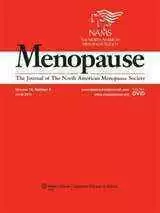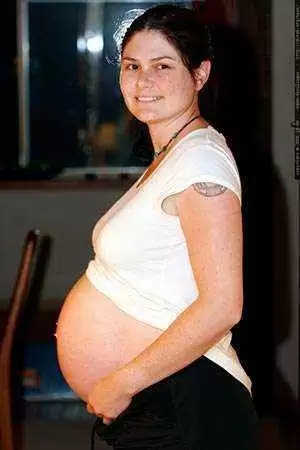At the University of Chicago Celiac Disease Program, women with celiac disease who have recently become pregnant often contact us. Remarkably, the questions we receive from these women seldom stray from one issue, that is, whether or not to maintain a gluten-free diet while pregnant. Most women mistakenly believe that the gluten-free diet will deprive their developing fetus with the nutrients it needs, and hurt the growing baby. In fact, for a pregnant woman with celiac disease, remaining ON the gluten-free diet is the best and only option for the health of mother and child. The gluten-free diet provides pregnant women and their babies with all of the nutrients they need to grow and be healthy.
Fortunately, for all concerned, there have been excellent research studies on fertility, pregnancy and celiac disease conducted by top-notch investigators around the world. While this important research has mainly focused on women, it is important to note that researchers have established (since the 1950s) that men also suffer from infertility due to undiagnosed celiac disease.
Celiac.com Sponsor (A12):
Celiac Disease and Fertility
In research studies to date, the incidence of celiac disease in women with unexplained infertility has been estimated at four to eight percent. While a number of studies have demonstrated that unexplained infertility can be successfully treated with the gluten-free diet, others have shown that there are factors other than malabsorption of nutrients that result in infertility, delayed menarche (the start of the menstrual cycle) and early menopause.
In two large case control studies, researchers examined the incidence of delayed menarche, amenorrhea (cessation of the menstrual cycle for short periods of time), and early menopause. Both studies enrolled women with celiac disease who were following the gluten-free diet or eating a gluten-containing diet.
They found that women who were not on the gluten-free diet started their menstrual cycle up to a year and a half later than women with celiac disease who were following the diet. In addition, researchers found that up to 39% of women not on the diet experienced periods of amenorrhea, compared to only nine percent of women who were on the gluten-free diet. As you would expect, women with celiac disease who were not on the gluten-free diet were found to enter menopause four to five years earlier than women with celiac disease who were on the diet.
Researchers who have studied women with infertility have found that they test positive for celiac disease-related antibodies at a rate that is ten-fold higher than the normal population. They have also demonstrated that women with infertility who are diagnosed with celiac disease do not always exhibit iron, B-12, or folate deficiencies, which points to other celiac disease-related explanations for the development of their infertility.
Celiac Disease and Pregnancy
Researchers have also studied the effect of the gluten-free diet in pregnant women with celiac disease, in order to determine any impact on the developing fetus and the pregnancy outcome. In a study of 25 patients and 60 pregnancies researchers found that 21% of women who were not on the gluten-free diet experienced pregnancy loss, and 16% of women experienced fetal growth restriction. Researchers also remarked, however, that successful pregnancies occurred before and after diagnoses for many women in the study.
In a large Danish study with 211 infants and 127 mothers with celiac disease, researchers found that the mean birth weight of children born to mothers on a gluten-containing diet was significantly lower than babies born to mothers without celiac disease. Interestingly, this same study determined that women on the gluten-free diet gave birth to children weighing more than those born to mothers without celiac disease!
In a case-control study that looked at the effect of the gluten-free diet on pregnancy and lactation, investigators learned that women with celiac disease who were not on the gluten-free diet experienced pregnancy loss at a rate of 17.8%, compared to 2.4% of women with celiac disease who were on the gluten-free diet. These researchers found that there was no difference in the occurrence of pregnancy and fertility problems in women with sub-clinical (positive blood test, negative biopsy) or clinical disease (positive blood test, positive biopsy).
Finally, in a group of women with celiac disease who had been pregnant more than once, researchers looked at the effect of the gluten-free diet on their future pregnancies. They concluded that the institution of the gluten-free diet upon diagnosis caused a relative 35.6% drop in pregnancy loss, 29.4% drop in low-birth weight babies and an increase of two and a half months of breastfeeding.
While the malabsorption of nutrients is not the only cause of fertility and pregnancy-related problems for women with celiac disease, the gluten-free diet is essential to improving the health of women and their babies.








Recommended Comments